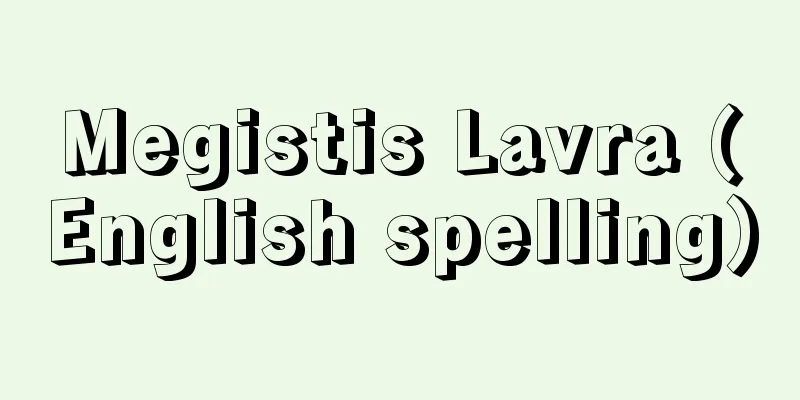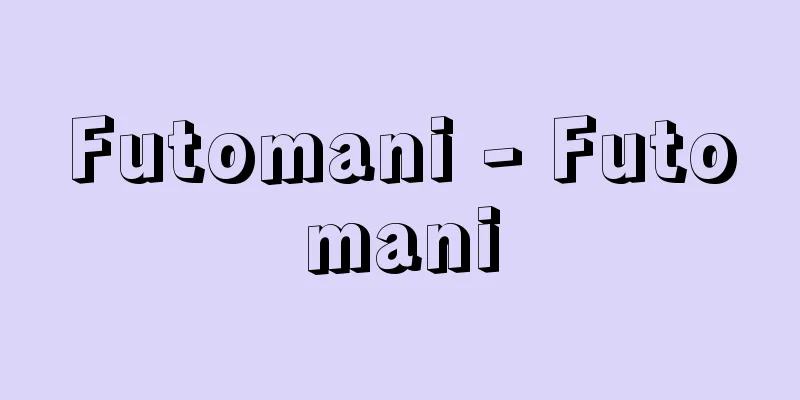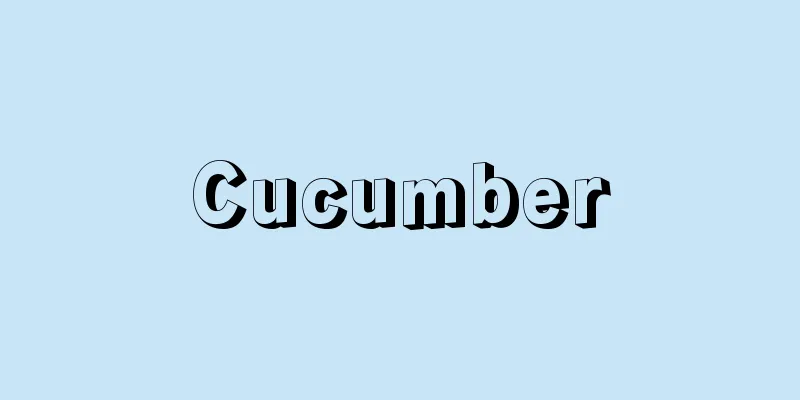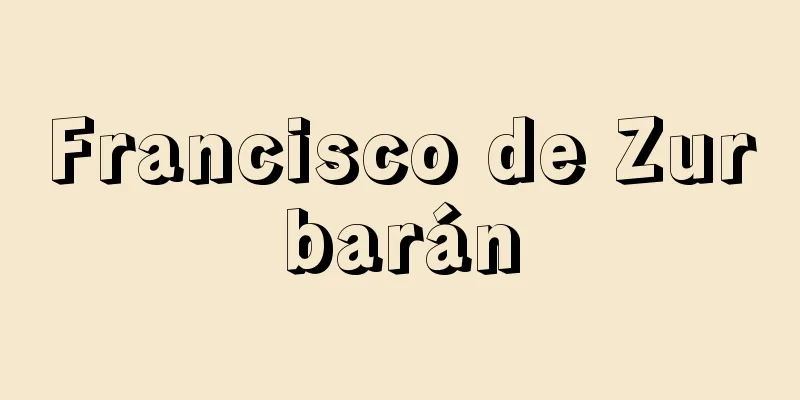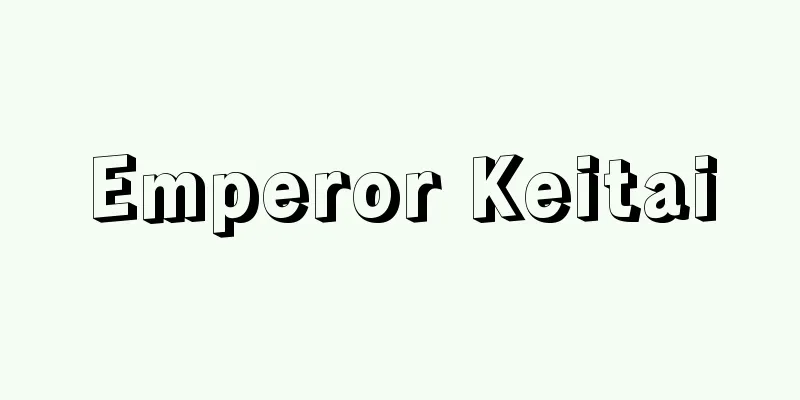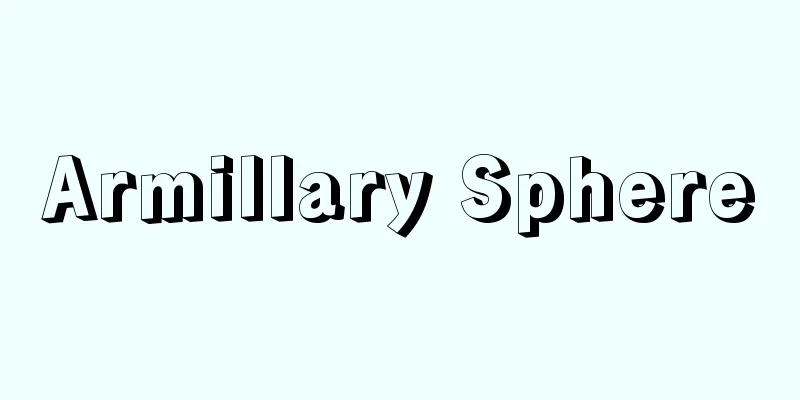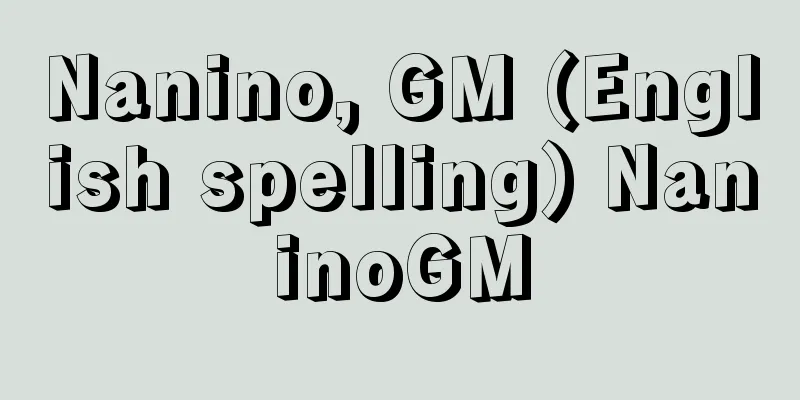supreme command - supreme command
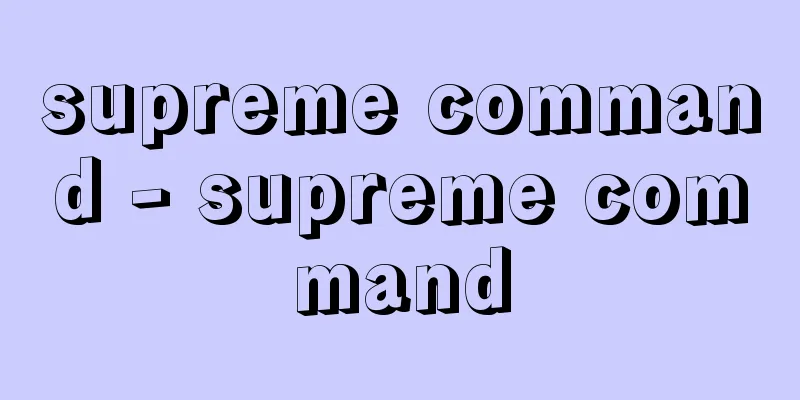
|
Supreme command refers to the power to command and issue orders to the national military, and supreme command refers to the highest authority regarding that power. This term was used especially under the Meiji Constitution, as in the Emperor's supreme command (military command authority) and "independence of supreme command." Generally, the supreme command and power of the military is held by a head of state such as a monarch or president, but after World War II, in the case of the former West German Wehrmacht (Befehls- und Kommandogewalt), the Bonn Basic Law gave this power to the Federal Minister of Defense in peacetime and to the Federal Chancellor in wartime (defense situation), and in the case of the Japanese Self-Defense Forces (highest command and supervision power), the Self-Defense Forces Law gives it to the Prime Minister, who represents the Cabinet. In West Germany, the aforementioned power to command and issue orders is positioned within the executive power of the Federal Government, while in Japan, it is considered to be included in the administrative power of the Cabinet (excluding the unconstitutional issue of the Self-Defense Forces). Under the Meiji Constitution, the supreme command of the Emperor was also called the prerogative of military command or the prerogative of the navy, and was considered to be independent from general state affairs in the sense that it was outside the advice of the Ministers of State. However, this was not based on a written constitution, but was mainly due to de facto custom and practical necessity. The institutions that assisted the Emperor in exercising his supreme command included the Chief of Staff (Army), the Chief of the Naval Staff, later the Chief of the Naval Staff (Navy), the Marshal's Office, the Military Councillors, and the Imperial General Headquarters. The term military administration, which is distinct from supreme command (military command), refers to the administrative functions of the military other than those related to military operations, such as the organization, personnel, and budget of the military, and was assisted by the Minister of the Army and the Minister of the Navy as general state affairs. However, the conflict between the assistant command organs and the Cabinet (especially in terms of foreign affairs) was also a factor that led to military domination, and came to be criticized as "the evils of militarism" (Minobe Tatsukichi). In democratic countries, a system of civilian supremacy or civilian control has been established to ensure the supremacy of civilian politics over supreme command of military forces engaged in combat, i.e. supreme command. The basis of the system of civilian control over the military and military personnel is the supremacy of citizens or the people, control by Congress as the representative body of the people, and management and operation of the military by the government. In the United States, the President holds supreme command as commander in chief under the Constitution, but in reflection of the Vietnam War, the US Congress enacted the War Powers Act by joint resolution of both houses of Congress in November 1973 to limit the President's use of military forces. [Jun Furukawa] "The Independence of Supreme Command," by Nakano Tomio (1973, Hara Shobo)" ▽ "Supreme Command," by Oe Shinoo (1983, Nippon Hyoronsha)" ▽ "On Supreme Command - Democracy and the National Defense Forces, revised edition, by Mizuma Shingo (1984, Yawata Shoten)" ▽ "Why Was There a 'War'? - The Idea of Supreme Command," by Kikuta Hitoshi (1998, Ozawa Shoten)" ▽ " The Issue of Interference with Supreme Command and the Japanese Mass Media," edited and published by the Tamai Kiyoshi Study Group, Department of Political Science, Faculty of Law, Keio University (1999)" [References] | | | | |Source: Shogakukan Encyclopedia Nipponica About Encyclopedia Nipponica Information | Legend |
|
統帥とは国家の軍隊に対する指揮・命令の作用をいい、統帥権はその作用に関する最高の権力をいう。この語は、とくに明治憲法のもとで、天皇の統帥大権(軍令大権)や「統帥権の独立」のように用いられた。一般に、軍隊の最高指揮権・命令権は君主や大統領のような国家元首が握るのであるが、第二次世界大戦後、旧西ドイツの国防軍の場合(命令権・司令権Befehls- und Kommandogewalt)、ボン基本法で、平時においては、連邦国防大臣に、戦時(防衛事態)には連邦首相に与えられ、また日本の自衛隊の場合(最高の指揮監督権)には、自衛隊法により、内閣を代表する内閣総理大臣に与えられている。そして西ドイツの場合、前述の命令権・司令権は連邦政府の執行権のなかに位置づけられ、日本の場合には内閣の行政権に含まれると考えられている(ただし自衛隊の違憲問題を別として)。 明治憲法のもとで天皇の大権たる統帥権は、軍令大権とも帷幄(いあく)の大権ともいわれ、国務大臣の輔弼(ほひつ)の外にあるという意味で一般国務より独立したものと考えられていたが、これは憲法の成文に基づくものではなく、主として事実上の慣習および実際の必要によるものであった。天皇の統帥権行使を補佐する機関として、参謀総長(陸軍)、軍令部長、のち軍令部総長(海軍)、元帥府、軍事参議院、大本営などが置かれた。統帥(軍令)と区別される語に軍政があるが、軍政とは軍隊の組織編成・人事・予算など、作戦用兵に関する事項以外の軍隊の行政作用をいい、一般国務として陸軍大臣・海軍大臣が輔弼した。しかし、統帥補佐機関と内閣(とくに外交)との対立は、軍部支配をもたらす要因ともなり、「軍国主義ノ弊」(美濃部達吉(みのべたつきち))と批判されるところとなった。 民主主義国家においては、戦闘を遂行する軍事力の最高指揮・命令権、すなわち統帥権に対して、文民による政治の優越を確保するために、文権優越civilian supremacyないし文民統制civilian controlの制度が設けられている。軍隊や軍人に対するシビリアン・コントロールの制度の基礎には、市民ないし国民の優位、国民代表機関たる議会によるコントロール、政府による軍隊の管理・運営がある。アメリカ合衆国では憲法上、大統領が最高司令官commander in chiefとして統帥権を握るが、連邦議会はベトナム戦争の反省として、大統領の軍隊投入を制限するために、1973年11月、上下両院合同決議による戦争権限法を定めた。 [古川 純] 『中野登美雄著『統帥権の独立』(1973・原書房)』▽『大江志乃夫著『統帥権』(1983・日本評論社)』▽『三潴信吾著『統帥権について――デモクラシーと国防軍』改訂版(1984・八幡書店)』▽『菊田均著『なぜ「戦争」だったのか――統帥権という思想』(1998・小沢書店)』▽『慶應義塾大学法学部政治学科玉井清研究会編・刊『統帥権干犯問題と日本のマスメディア』(1999)』 [参照項目] | | | | |出典 小学館 日本大百科全書(ニッポニカ)日本大百科全書(ニッポニカ)について 情報 | 凡例 |
<<: Issue of infringement of supreme command authority
Recommend
Henan Longshan Culture
…The carbon-14 dating of the Miaodigou site is 27...
Gamete - Haigushi (English spelling)
A reproductive cell that is produced by organisms...
ḥājj (English spelling) hajj
...The pilgrimage to Kaaba, which can be performe...
Dice Gold Flower - Recent
1872‐1936 A famous Chinese prostitute. Born in Suz...
Chinhiko - Uzuhiko
⇒ Shiine Tsuhiko Source: Kodansha Digital Japanese...
Origoe - Origoe
...The central tune of a "setsubono". (...
Larch red sawfly - Larch red sawfly
...Because their larvae are leaf-eating, many spe...
Neo-Confucianism
A new Confucianism was established by Zhu Xi (Zhu...
Qom (English spelling)
Qum is a city in Markazi Province in north-central...
Aka - Akago
…(2) Lolo-Burman group (a) Burmese language famil...
Leaf beetle (leaf insect) - Leaf beetle (English spelling)
A general term for insects in the beetle order Chr...
Solidaridad Catalana (English spelling) Solidaridad Catalana
…Like Canovas, Maura aimed for a “revolution from...
Pravarasena I (English spelling)
…After the collapse of the Satavahana dynasty, th...
Cassegrain antenna
An antenna consisting of a pair of reflectors (mai...
Choral Concerto
…In the 1980s, he produced many works in the fiel...
